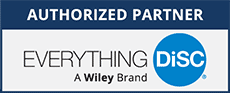Medical Terminology is a basic requirement for nearly every healthcare related career path. Recognizing, understanding, and pronouncing basic medical terms, abbreviations, and more is critical for success in a clinical environment or behind the scenes support role. And medical terminology courses don’t just teach you vocabulary. You’ll learn how to break down complex medical terms concepts into prefixes, suffixes and word roots so that you can decipher them.
Let medical terminology be the foundation on which to build your healthcare career. Let’s take a closer look at some careers that require this knowledge and skill.
Medical Transcriptionist
While many companies are digitizing their medical records, there is still a market for medical transcriptionists. In the past, medical transcriptionists listened to a doctor’s dictation and transcribed it into the medical record.
Today, as many doctors are required to create their own records, medical transcription is evolving into medical record editing. A strong background in medical terminology is required for these roles.
Medical Assistant
If you’re considering a career as a medical assistant, you should start out with a basic introduction to medical terminology. A medical assistant is usually the first person a patient sees during an appointment. They’ll take and record vital signs and medical histories.
This role is a combination of clinical and clerical work, but it is necessary to understand medical terminology to succeed.
Medical Records Clerk
If you would rather be behind the scenes, a role as a medical records clerk could be a good choice. This job involves organizing and managing health information. Accuracy, accessibility and data security are all key aspects of the job.
The job may require certification or an associate’s degree, but starting with a medical terminology course can be a good way to determine if this is the right career path for you.
Medical Coding and Billing
To ensure patients are receiving the right bill for the care they were provided, medical coding and billing specialists train to better understand the requirements of providers and insurance companies. Accuracy and privacy are some of the main concerns.
Medical terminology will be the basis on which you can build a new career as a medical coding and billing specialist.
If you want to broaden your skill set and consider a career in the medical industry, either working with patients or in an administrative capacity, beginning with a medical terminology course is an excellent way to start.
To learn more, contact Corexcel about online medical terminology courses available today.

